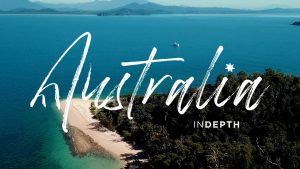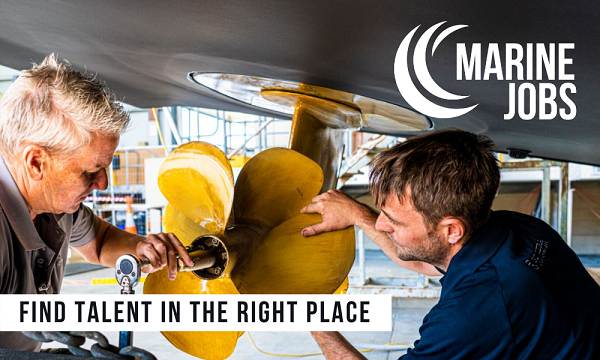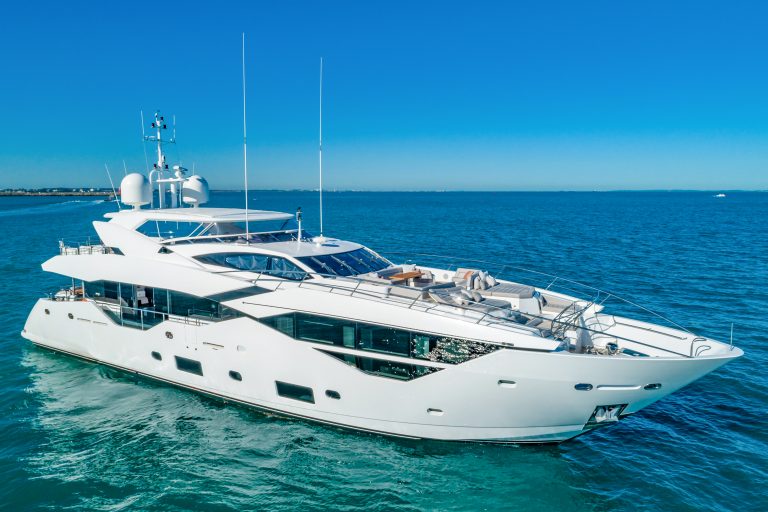
But they almost suffered the same fate as cruise ships.
Chief executive of Superyacht Australia & Australian Commercial Marine Group David Good told Cruise Passenger: “Initially we were caught up in the ban from 27 March last year. However, we successfully lobbied that we are vastly different in risk and economic benefit.
“Key points made to ministers at the time, mostly revolve around the industry lack of concern about our high labour costs, it focusses on quality:
- We make Superyachts here. A significant number in the international fleet has been manufactured here (Oceanfast, the largest exporter). Just last week, we toured the two largest ever built in WA with local state and federal politicians, 85m MY Silver Bold and 84m White Rabbit Golf.
- Superyachts choose to refit here – Australia leads the Asia Pacific as the refit and maintenance capital that competes in quality to European and American yards and employs thousands of workers in our shipyards
- Our crew dominate the industry. Australians make up around 14,000 crew or 25% of the industry
- 12 passenger limit make it a significantly reduced risk for transmission.
Mr Good said there was a 15% decline in foreign vessels entering Australia last year compared to 2019 – but the yachts that did come were larger and stayed 75% longer.
Take the 75-metre Lady E.
She has everything on board for a dream holiday at sea – even a Turkish hammam, home cinema, gym and a large heated pool on the sun deck. Who could ask for more?
She also comes with the latest water toys, including sparkling new jet skis, kayaks and paddleboards. In addition, she has six cabins and can comfortably sleep, 12 guests.
Owned by a Melbournian, Lady E recently spent some time in the Kimberley. She is currently cruising around Thursday Island in the Torres Straits.
“We are having a bit of a bonanza with more Australians chartering our superyachts to holiday at home,” said Mr Good.
Many superyachts which have moved up north to the Whitsundays are “booked solid,” Mr Good added.
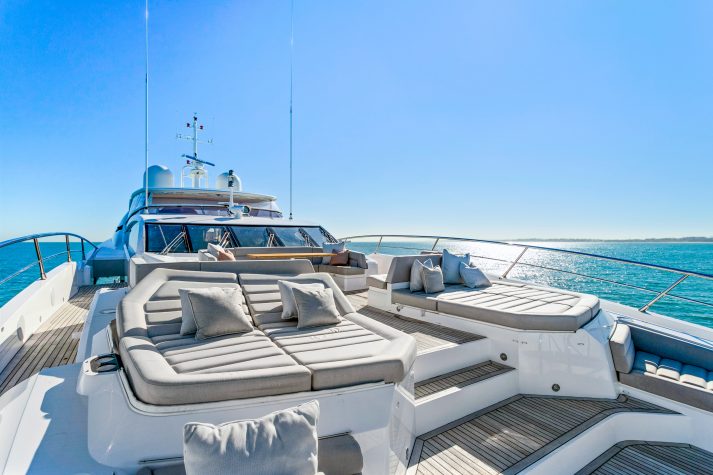
“We have seen a sharp increase in our charter business. For example, cruise charters of the Kimberley season onboard the 35-metre Fratelli have been sold out. It costs $150,000 a week to charter Fratelli,” he said.
Ocean Alliance managing director Joachim Howard said the pandemic had created a new audience of Australians looking for a different holiday experience. The company handles Fratelli’s charters.
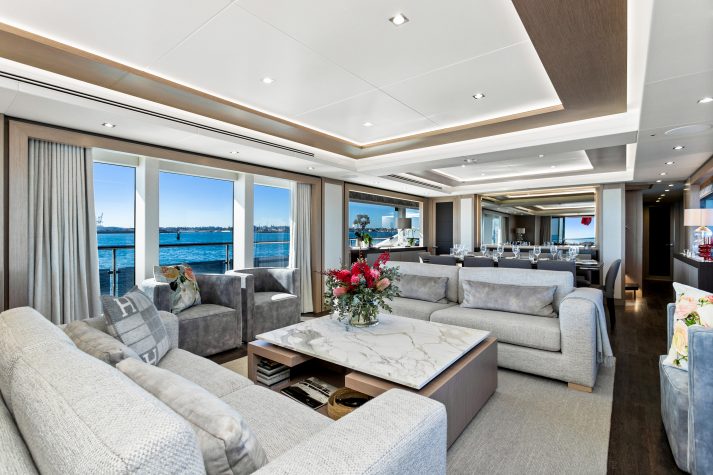
“A superyacht experience is customised and curated to meet the exact preferences of the guests – even down to the daily menus. This is different from cruising with True North, which charges about $25,000 per head.
“From our feedback, if you get five couples together and spend between $100,000 to $300,000 a week to charter a superyacht, you have a customised holiday at sea,” Mr Howard said.
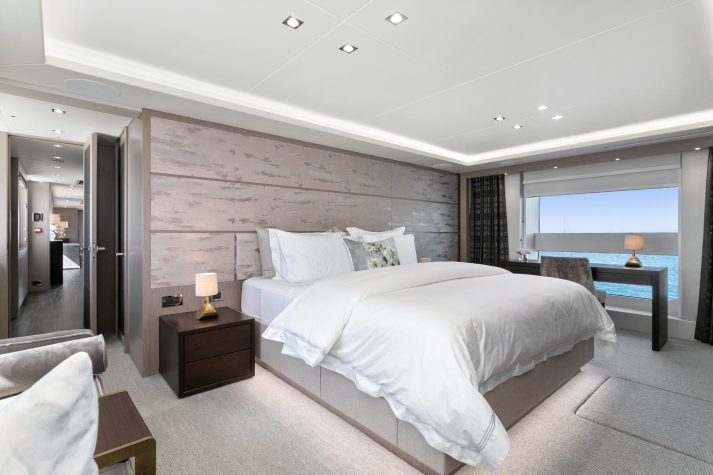
With school holidays around the corner, the charter business is also seeing more families chartering 35-metre superyachts to cruise local waters in Pittwater. The yachts come with inflatable slides, jet skis and paddleboards.
As the international border remained closed, Mr Good said that many Australians can now cruise the Mediterranean and have sent their superyachts to Australia.
There has been an influx of superyachts for charter, with 101 available in 2020/2021 – up from 51 in 2019.
The sweet spot for the charter business is the 35-40metre yachts which cost between $40,000 to $100,000 a week to charter, including food, drinks, crew and a chef.
Mr Good said that the superyacht charters are attracting wealthy Australians who would usually go to Aspen to ski or the South of France during summer. With restrictions on international cruising, Australians who normally spend between $30,000 to $40,000 per person on their holidays are now chartering yachts for $100,000 a week.
Most superyachts head to the Whitsundays for winter and return to Sydney in October for the summer and festive season, during which many corporates book the yachts for their Christmas parties.
